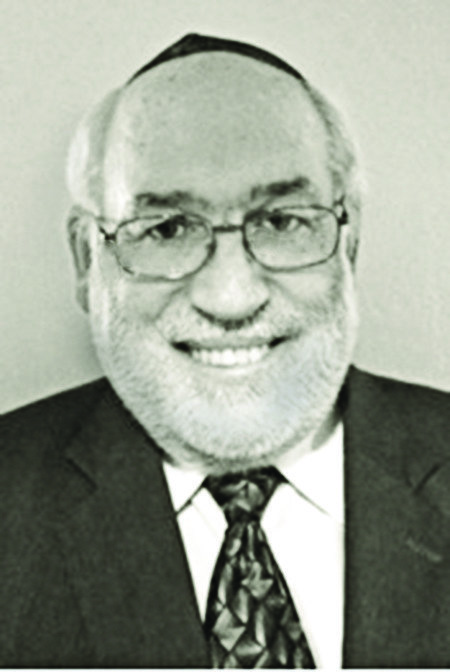Torah tales affirm that we all count
Our portion this Shabbat is named after Aaron’s grandson, Pinchas, who defended God’s honor in the previous portion, and was promised that the Priestly Dynasty would remain in this family forever.
As a matter of fact, anyone who is a Kohen today is a direct descendent of Aaron, his son Eleazar and his grandson Pinchas. Interestingly, this is one of only six Torah portions that are named after a person. The others are Noah, Sarah, Yitro, Korach and Balak.
At any rate, in our weekly portion we find a number of interesting episodes. In one section of the narrative, we discover a very positive ruling in favor of women. According to the laws explained to Moses by God, when a man dies, his inheritance is assigned to his sons, with the eldest son receiving a double portion. In this week’s reading, Moses is presented with a unique situation.
The daughters of a man named Zelophechad – of whom very little is known – approach Moses and state that their father has died, leaving behind only daughters. They request that they receive their father’s portion in the land of Israel.
Moses checks with God, who agrees, and their wish is granted.
Now, this was no easy matter. The concept of inheritance and sons was extraordinarily complex. For example, in biblical times, the firstborn son assumed the father’s authority and responsibilities. However, the Bible also indicates that the father could rescind the birthright and pass it on to a younger son. A good example of this is the case of Jacob and his 12 sons; Reuben was the eldest, but the birthright was given to Joseph’s sons.
In Pinchas, we learn that the birthright could also be assigned to a firstborn daughter, and other property could in fact be transferred to the other daughters – which was an important and key ruling.
In this week’s parashah, and in many others, the status of women is both recognized and encouraged. Remember that events in this portion occurred more than 3,000 years before an activist from the Bronx coined the phrase “Me Too,” in 2006!
Later in the reading, God tells Moses to climb to the top of Mount Nevo to see the Promised Land, since he was not allowed to physically enter Canaan. Moses, ever the humble servant, asks God to appoint a worthy individual to succeed him. God instructs Moses to endow Joshua with some of his spiritual powers and officially name him as his successor.
So, who was Joshua? He served as Moses’ attendant. He was one of two people who held Moses’ uplifted arms as an omen against the Amalekites, who had attacked them from the back. Joshua was allowed to accompany Moses half-way up Mount Sinai, as Moses continued on to receive the commandments. And Joshua was one of two confident spies who returned from a visit to Canaan expressing his faith in God; that they would, in fact, be able to reclaim their land. Quite a resume for someone to take over Moses’ responsibilities, for sure.
Joshua, Yehoshua in Hebrew, means “God is salvation,” which was a perfect fit for what Joshua was about to experience.
Now, what ties together these three stories of Pinchas attaining eternal priesthood, Zelohechad’s daughters receiving their father’s inheritance, and Joshua chosen as the successor to Moses? All three remind us that the Torah, as much as it is about grandiose laws, guidelines and ideals, is really about people – what they do and what they stand for.
And this reminds us that our lives are also centered around people. And perhaps this is the genius of needing a minyan to have a Jewish service. We learn that we all count!
ETHAN ADLER is the rabbi at Temple Beth David, in Narragansett.








